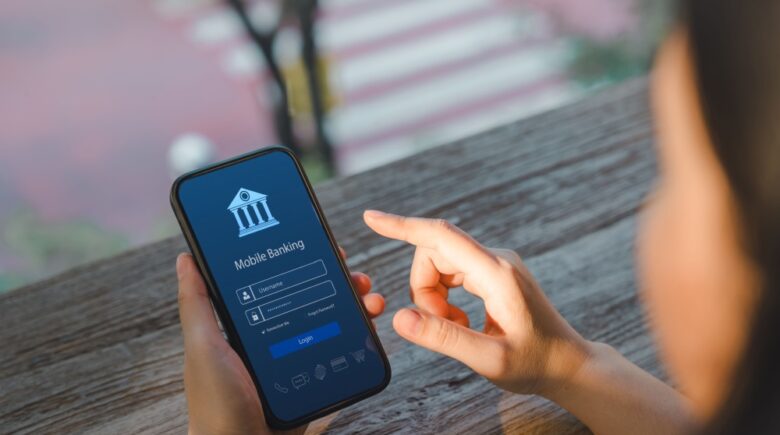The leaves have begun falling and school is in session, but it’s not too late to take control of your finances in 2025. Autumn’s crisp air isn’t just great for bonfires and hay rides; it can also energize you to take action towards all your financial goals before the year comes to an end. Whatever your situation, from just starting out to eyeing retirement, we hope you’ll find helpful ways to make your money work for you.
Open a High-Interest Savings Account
Many banks make it easy to open a savings account alongside a new checking account. While this can be convenient, don’t just blindly put all your money in a bank account that pays a paltry amount of interest. Plenty of banks and credit unions, both large and small, offer savings accounts that let you maximize your money by paying hefty interest rates of four percent or more.
While some banks require minimum initial or ongoing deposits, others allow you to save at your own pace. Once the magic of compound interest kicks in, you’ll thrill at the sight of your rapidly growing balance. That excitement will likely inspire you to make bigger or more frequent deposits. Before you know it, you’ll have a surprisingly large amount of money for your wants and needs.
Pay Off Your Smallest Bill
Whether or not you’re familiar with finance expert Dave Ramsey’s snowball effect method of paying off debt, you can benefit from its logic. The money guru advises those who aspire to become debt-free to pay off their smallest bills first. The idea is to build momentum on your debt-free journey by taking the action that requires the least financial effort. Once you’ve paid off that small bill, you’ll be inspired to pay off the next, and the next, and the next, until all those balances have dwindled to nothing.
Whether you go on to follow the rest of Ramsey’s advice or devise your own financial plan, you’ll free up more money to pay off other debts, save for retirement, or just watch your new, high-interest savings account balance grow by leaps and bounds.
Use Alerts to Avoid Unnecessary Fees
Most of us have been guilty at some point of paying fees due to carelessness. Letting your checking account balance dip too low can cause bounced checks, leading to overdraft fees. Failing to check your credit-card balance before making purchases can push your account over the limit, triggering a fee and requiring you to restore your balance to an under-the-limit status. Forgetting to set up automatic payments on those same accounts can cause you to miss due dates, resulting in late fees.
Instead of relying on memory, make things easy on yourself — and your wallet — by setting up account alerts with your bank or card issuer. These alerts, whether by text or phone call, provide gentle reminders to make on-time payments, curb your spending, and take other actions that will help you avoid shelling out more of your hard-earned money than necessary.
Guard Against Fraud
Receiving alerts when unusual activity occurs is yet another smart way to leverage notifications. Just reply to a text or phone call to let your financial institution know whether or not you made the suspicious purchases. It’s a simple, painless way to protect your accounts from would-be fraudsters.
There are plenty of other free ways to keep an eye on your money. Once a year, you can check out your credit reports at no cost from the three major credit-reporting agencies: Equifax, TransUnion, and Experian. This is a good way to make sure your payment history is being reported correctly by your creditors; if it isn’t, you’ll be able to easily dispute incorrect items on your credit report. It’s an equally wise way to find any accounts fraudulently opened in your name. Annualcreditreport.com is the only site offering all three reports for free once per year.
Create an Emergency Fund
Many of us have learned the hard way that we can no longer count on an employer to provide financial security. From employment fears spurred by artificial intelligence to a constantly evolving economy, outside forces can make a mess of our personal finances and wreak havoc on our peace of mind. The good news is that an emergency fund can help in both regards.
From hedging against layoffs to providing a little padding in uncertain economic environments, saving three to six months’ worth of living expenses helps protect you and your family from both financial disaster and incessant worrying. In the event of a layoff, your fund will pad meager unemployment payments. In the case of permanent job loss, it will enable you to be a little pickier; you’ll have more freedom to only submit your resume for jobs you really want. Emergency funds can even provide a hedge against inflation so higher prices at the gas pump or grocery store won’t hurt as much.
Start Planning Next Year’s Budget
This one may seem counter-intuitive. After all, we often reserve tasks like this for the beginning of the new year. But formulating a big-picture idea of what you want to do with your money will help you formulate a solid, doable plan. Saving and spending goals are too important to save for December 31st, so start thinking now about what you want to focus on in 2026.
Maybe you’re too close to retirement for comfort, and your nest egg is looking frighteningly skimpy. Or you need a nudge to start saving for your children’s education. If eliminating debt is a priority, you’ll need plenty of time to plan. Whatever your goals, your future self will thank you if you start the ball rolling now.
The leaves have begun falling and school is in session, but it’s not too late to take control of your finances in 2025. Autumn’s crisp air isn’t just great for bonfires and hay rides; it can also energize you to take action towards all your financial goals before the year comes to an end. Whatever your situation, from just starting out to eyeing retirement, we hope you’ll find helpful ways to make your money work for you.
Open a High-Interest Savings Account
Many banks make it easy to open a savings account alongside a new checking account. While this can be convenient, don’t just blindly put all your money in a bank account that pays a paltry amount of interest. Plenty of banks and credit unions, both large and small, offer savings accounts that let you maximize your money by paying hefty interest rates of four percent or more.
While some banks require minimum initial or ongoing deposits, others allow you to save at your own pace. Once the magic of compound interest kicks in, you’ll thrill at the sight of your rapidly growing balance. That excitement will likely inspire you to make bigger or more frequent deposits. Before you know it, you’ll have a surprisingly large amount of money for your wants and needs.
Pay Off Your Smallest Bill
Whether or not you’re familiar with finance expert Dave Ramsey’s snowball effect method of paying off debt, you can benefit from its logic. The money guru advises those who aspire to become debt-free to pay off their smallest bills first. The idea is to build momentum on your debt-free journey by taking the action that requires the least financial effort. Once you’ve paid off that small bill, you’ll be inspired to pay off the next, and the next, and the next, until all those balances have dwindled to nothing.
Whether you go on to follow the rest of Ramsey’s advice or devise your own financial plan, you’ll free up more money to pay off other debts, save for retirement, or just watch your new, high-interest savings account balance grow by leaps and bounds.
Use Alerts to Avoid Unnecessary Fees
Most of us have been guilty at some point of paying fees due to carelessness. Letting your checking account balance dip too low can cause bounced checks, leading to overdraft fees. Failing to check your credit-card balance before making purchases can push your account over the limit, triggering a fee and requiring you to restore your balance to an under-the-limit status. Forgetting to set up automatic payments on those same accounts can cause you to miss due dates, resulting in late fees.
Instead of relying on memory, make things easy on yourself — and your wallet — by setting up account alerts with your bank or card issuer. These alerts, whether by text or phone call, provide gentle reminders to make on-time payments, curb your spending, and take other actions that will help you avoid shelling out more of your hard-earned money than necessary.
Guard Against Fraud
Receiving alerts when unusual activity occurs is yet another smart way to leverage notifications. Just reply to a text or phone call to let your financial institution know whether or not you made the suspicious purchases. It’s a simple, painless way to protect your accounts from would-be fraudsters.
There are plenty of other free ways to keep an eye on your money. Once a year, you can check out your credit reports at no cost from the three major credit-reporting agencies: Equifax, TransUnion, and Experian. This is a good way to make sure your payment history is being reported correctly by your creditors; if it isn’t, you’ll be able to easily dispute incorrect items on your credit report. It’s an equally wise way to find any accounts fraudulently opened in your name. Annualcreditreport.com is the only site offering all three reports for free once per year.
Create an Emergency Fund
Many of us have learned the hard way that we can no longer count on an employer to provide financial security. From employment fears spurred by artificial intelligence to a constantly evolving economy, outside forces can make a mess of our personal finances and wreak havoc on our peace of mind. The good news is that an emergency fund can help in both regards.
From hedging against layoffs to providing a little padding in uncertain economic environments, saving three to six months’ worth of living expenses helps protect you and your family from both financial disaster and incessant worrying. In the event of a layoff, your fund will pad meager unemployment payments. In the case of permanent job loss, it will enable you to be a little pickier; you’ll have more freedom to only submit your resume for jobs you really want. Emergency funds can even provide a hedge against inflation so higher prices at the gas pump or grocery store won’t hurt as much.
Start Planning Next Year’s Budget
This one may seem counter-intuitive. After all, we often reserve tasks like this for the beginning of the new year. But formulating a big-picture idea of what you want to do with your money will help you formulate a solid, doable plan. Saving and spending goals are too important to save for December 31st, so start thinking now about what you want to focus on in 2026.
Maybe you’re too close to retirement for comfort, and your nest egg is looking frighteningly skimpy. Or you need a nudge to start saving for your children’s education. If eliminating debt is a priority, you’ll need plenty of time to plan. Whatever your goals, your future self will thank you if you start the ball rolling now.




